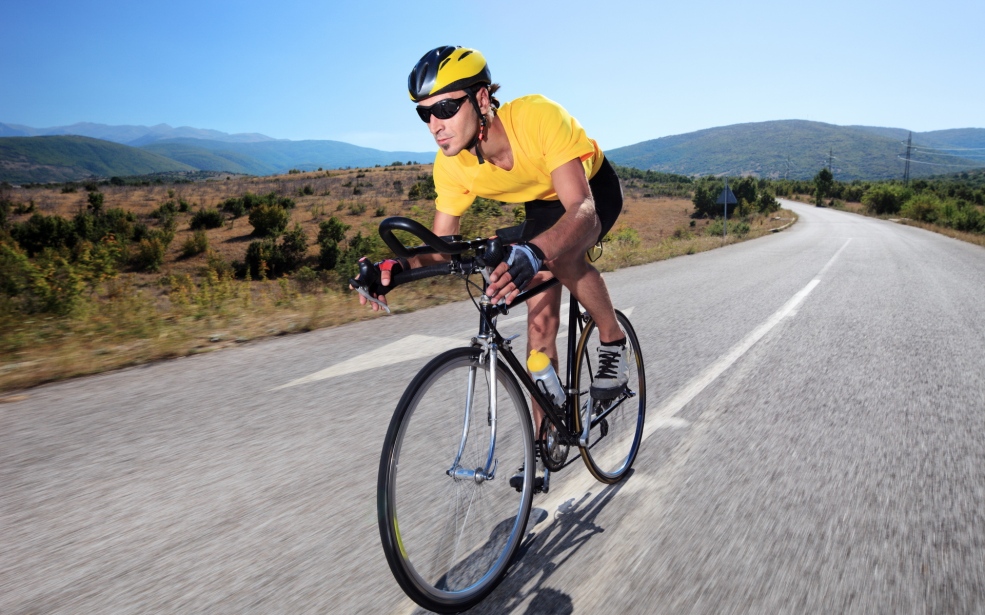Cycling is a pastime that’s omnipresent in the UK. It’s simple to get into, and doesn’t require an enormous financial outlay – though if you want to make an enormous outlay, then the technology is there to reward you.
Cycling is, however, a hobby that’s much misunderstood – particularly by people who’ve yet to get into. Let’s address some of the more common queries in a cycling FAQ.
Isn’t cycling dangerous?
By far the biggest concern prospective cyclist have is that there exists a chance that they’ll fall off and hurt themselves. In some cases, people have even died after falling off their bikes. Is it really worth the risk?
It’s true that, of all the cyclists in Britain, a few of them will encounter accidents. Per figures from 2014, this figure was just over twenty-thousand, with more than a hundred of them being fatal. And so it’s undeniable that cycling carries with it a degree of risk.
But to really examine this concern and see whether it’s justified, we’ll also have to judge it against its opposite: not cycling. Not cycling, too, carries with it a degree of risk. The number of obesity related deaths in the UK every year stands at several thousand, depending on how you interpret the figures. Clearly, one of these things poses a greater risk to you than others.
We should also consider that, of the number of people who die in cycling accidents every year, a given proportion will have done so after taking unnecessary risks. A sizeable portion of fatal cycling accidents occur because the rider wasn’t wearing a helmet. Doing so, therefore, can considerably lessen one’s chance of suffering an accident.
Why isn’t a helmet mandatory?
If the benefits of a helmet are so self-evident (as they surely are), then why isn’t a cycling helmet mandated by law, in the same way that, say, seat belts are? There are several reasons. The first is that a cycling helmet is not as effective a safety measure as seat belts are; it’ll protect your head when you fall off a bike, but you’ll still suffer injury. If you get hit by a car, this is even more so.
The second, and more fundamental reason, is that mandatory helmet laws haven’t been shown to be effective. They do reduce fatal accidents, but only insofar as they reduce the number of people cycling in the first place. This in turn erodes the environmental and public health benefits of widespread cycling. So, while a ban might cause fewer cyclists to come into A+E with cranial fractures, it might also cause even more non-cyclists to come in after suffering a heart attack. The trade off, so goes the argument, is hardly worth it.
When you consider the cost of enforcing such a ban, the purported benefits become even more miniscule. If you’re considering taking up cycling, however, then it’s certainly worth wearing a helmet and urging others to do likewise.
Isn’t cycling expensive?
Cycling, to be sure, requires that you buy equipment. You’ll also need to spend money occasionally on maintaining it, and transporting it to wherever you plan to ride it.
We should also consider, however, the costs that a cyclist might avoid. Since cycling is a convenient means of getting from place to place, cycling allows us to easily incorporate small amounts of exercise into a day. If you’re going to spend fifteen minutes cycling to work each morning and evening, then you’ll have more time to engage in other, non-fitness-related activities once you settle down – and thus you’ll have more time to be productive and make money.
You’ll also enjoy the economic benefits of a healthy lifestyle. People who regularly cycle, perhaps unsurprisingly, have been shown to enjoy a longer life expectancy than the general population (which is perhaps another reflection on the safety of cycling).
What gear do I need?
To get started with cycling, you’ll obviously need a bike – and preferably one that matches your needs. The bike should be appropriate for the sort of riding you’ll be doing: slick tyres for road cycling, rugged ones for off-road. You also might consider a protective helmet and reflective clothing. Finally, if you’re taking your bike out into the country, proper cycle carriers are essential. You can purchase towbars which incorporate room for four different bikes – it’s an essential purchase if you ever find yourself towing a caravan or other trailer, but it’s sure to come in handy even if you don’t!

